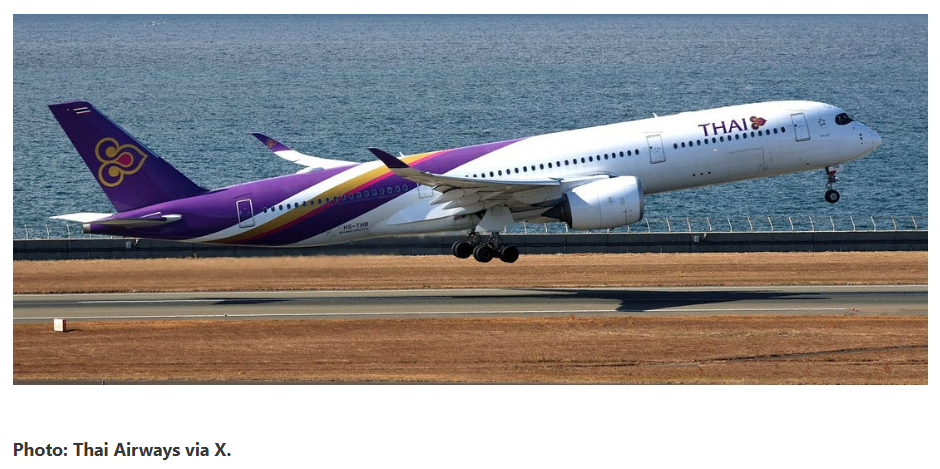០៦ កញ្ញា ២០២៥ / 06 September 2025
Could still happen but stay clear of Cambodian border
David Whitehouse
Sep 7

You will be forgiven for being confused as to whether Thailand is offering free tickets on internal flights in a bid to revive tourism.
The short answer is not yet, but maybe sometime.
The longer answer is that both the original idea, and the delay in implementing it, are due to the scourge of cyber-scam compounds in Southeast Asia.
Thailand announced the plan to give away 200,000 free internal flights for international tourists in August. The idea was to offer the flights from September through November for foreign tourists arriving by plane, though the plan has yet to be approved at cabinet level.
The country’s tourist arrivals have yet to recover to pre-Covid levels, and the picture is getting worse, not better. As of August 17, 20.8 million foreign tourists had visited the country in 2025, down 7% versus a year earlier.
A major problem for Thai policymakers is that the country is often given as a false destination by those involved in human trafficking to supply forced labour for cyber-scam compounds in the region. The trafficking victims are told that they are going to work in legitimate jobs in Thailand. When they arrrive in the country, they are transferred across the border to their real destinations in Myanmar or Cambodia.
This year’s fresh decline in tourist arrivals was precipitated by the misadventures of well-known Chinese actor Wang Xing, who flew to Bangkok in January for what he thought was an acting job.
Wang Xing ended up trapped in a cyber-scam compound in Myawaddy in Myanmar. Though he was quickly released when his captors realized he had a public profile, the damage was done. Tourists from China, the largest single source of visitors to Thailand, rushed to cancel their trips.
Thailand responded in February by cutting electricity and fuel exports to Myanmar border areas where the cyber-scam compounds operate.
Here we are in September. Where are the free flights?
Along with Myanmar, Cambodia is a major regional hub for cyber-scam compounds which Thailand wants cleaned up. Earlier this year the Thai government suspended cellphone towers along the Cambodian border believed to be servicing scams centres, and carried out arrests inside Cambodia.
The problem arises from the widely alleged complicity of the Cambodian government in the operation of the scam centres, which bring in billions of dollars each year.
Former Cambodian prime minister Hun Sen is still the country’s effective dictator, despite having handed over the office of prime minister to his son. In June, Hun Sen decided to assert his authority by leaking a private conversation with then Thai Prime Minister Paetongtarn Shinawatra.
Hun Sen understood that the deferential and conciliatory tone used by Paetongtarn Shinawatra in the call, and her criticism of a Thai military commander, were political dynamite. Shinawatra was suspended as prime minister soon after the leak, and her removal from office was confirmed by Thailand’s Constitutional Court on August 29.
The Asia Sentinel has reported that Hun Sen’s failure to get his hands on shares in Thai energy company Bangchak Corporation was a reason behind the breakdown of his long-standing relationship with the Shinawatra clan.
Since the leaking of the call, Cambodia and Thailand have fought a short war which cost the lives of soldiers on both sides and led to mass civilian displacement. Satellite images have shown that Cambodia progressively massed troops at the Thai border in the months leading up to the conflict. Hun Sen managed, at least in the short term, to change the subject from cyber-scam compounds to a narrative about the defense of Cambodian sovereignty against supposed Thai aggression.
The Cambodian government then cynically nominated Donald Trump for a Nobel Peace Prize once the fighting stopped.
None of this has been helpful in terms of getting bums on free plane seats. The original Thai plan to give away tickets still needs approval from the cabinet, having been held up by the uncertainty over Paetongtarn Shinawatra’s future.
A new prime minister, Anutin Charnvirakul, has now been appointed. But the Thai high season is getting closer, so it may not be logical to give away free seats at this point. The Tourism Authority of Thailand is now saying that it won’t give up on the plan and will keep trying to get it approved. Unless there’s a sharp recovery in tourism, the plan may still happen at some stage, especially as foreign tourists have been expecting it.
Clearly it would be sensible for visitors to Thailand to stay away from the Cambodian border. Cyber-scam compounds are no less of a problem for Thailand today simply because there has been a change of prime minister.
The ceasefire between the countries remains intact but uneasy. The Thai military has been forcibly displacing Cambodians from their homes in border villages inside Cambodia, while holding Cambodian soldiers as prisoners of war and accusing Cambodia of continuing to plant landmines aimed at Thai troops.
Thai nationalist hawks and the military now have a sense of momentum, and will decide for themselves how far they will go in seeking to assert themselves over their troublesome neighbour.